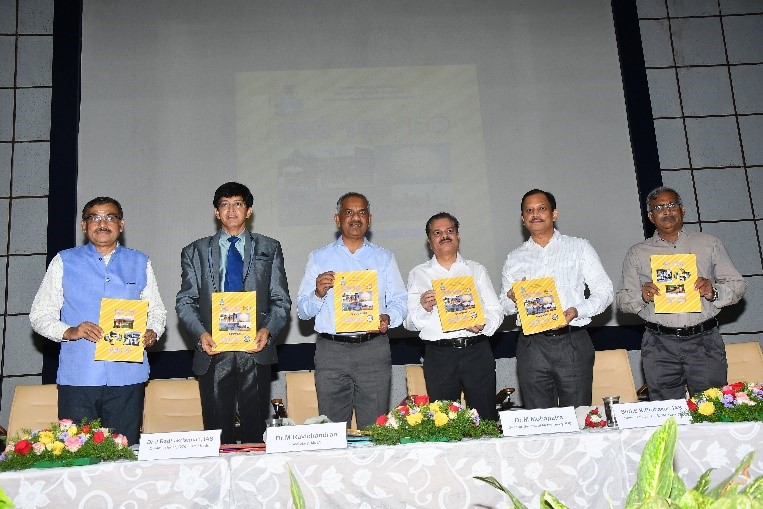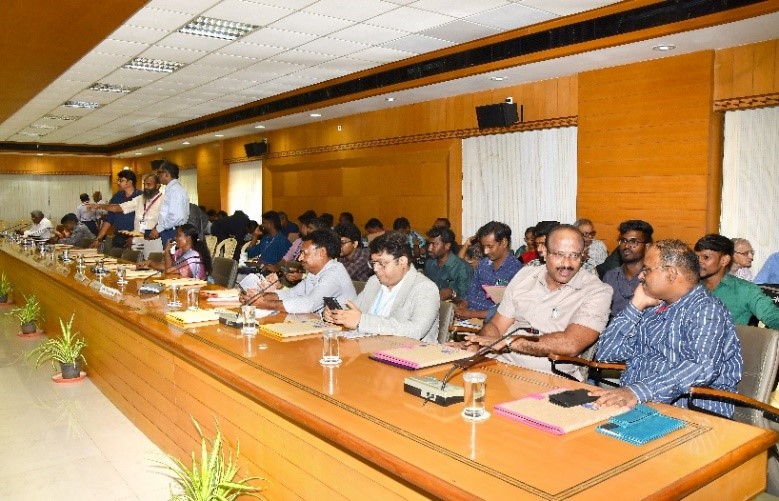- Curtain Raiser - 15th January 2024
- Exhibition 2024: Organized at Vigyan Bhawan
- Commemorative Release
- Exhibition 2025: Walkthrough at Bharat Mandapam
- 150th Foundation Day - 15th January 2025
- State Level Stake holders Workshop
- National Stake holders Workshop
- Popular Lectures by Eminent Personalities
- Major Milestones: Key achievements over 150 years
- Marathon: Run for weather awareness
- Sports: Games fostering team spirit
- Weather & Youth: Engaging and empowering young minds
- Met-Olympiad: Meteorology-based knowledge competition
- Competitions: Challenge yourself
- National & International Workshop at IMD
Weather and climate exert a strong influence on human activities. Agricultural, shipping,fishing, aviation, tourism, construction and various other sectoral communities require weatherand climate information for effective planning of relevant activities. Role of weather and climateparameters on agriculture is best portrayed by the description of the Indian economy, basicallybeing driven by agricultural produce, as a gamble on Indian monsoon. Also, vulnerability of about7500 km vast coastline of India to the devastations caused by landfalling cyclones over the Bay ofBengal and the Arabian Sea, which, often lead to substantial loss of life and property, is anothercause for concern. The major goal of various national and international meteorological programsis to minimize the adverse and maximize the positive socio-economic consequences of weatherand climatic events. The first step towards this goal is to generate reliable weather and climateforecasts. India Meteorological Department (IMD), ever since its establishment in 1875, has beenstriving hard to achieve this goal.However, highly complex and dynamic nature of meteorological parameters makes weatherforecasting a formidable task. With the likelihood of more extreme weather events in the globalwarming and climate change scenario, challenges in weather forecasting are increasing manifold.As such, the meteorological communities, worldwide, regularly upgrade their forecastingfacilities and capabilities and make use of all available observations from multiple platforms,numerical guidance from computer model forecasts, scientific theory, and experience to arrive ata forecast. After all this exercise, proper utilization of these forecasts would depend upon theforecast characteristics, viz., timeliness, accuracy and relevancy of the forecast as well as timelydissemination of disaster warnings and effective implementation of disaster managementstrategies. Thus, multiple stakeholders, including civil administrators, disaster managers and print& electronic media contribute significantly towards minimizing loss of life and property andderiving greater socio-economic value from the forecast. Regular interaction with the stakeholdersis an important component in this exercise.As in the past, Regional Meteorological Centre, Chennai which is entering into its 80th year ofservice to the southern region of the country, engaged with the various stakeholders, now, to takestock of the current forecast characteristics and their socio-economic value with regard to varioussectorial applications and to chalk out the path to meet the future challenges from the perspectivesof technological advancements, urbanization, extreme weather, impacts of climate change etc.

